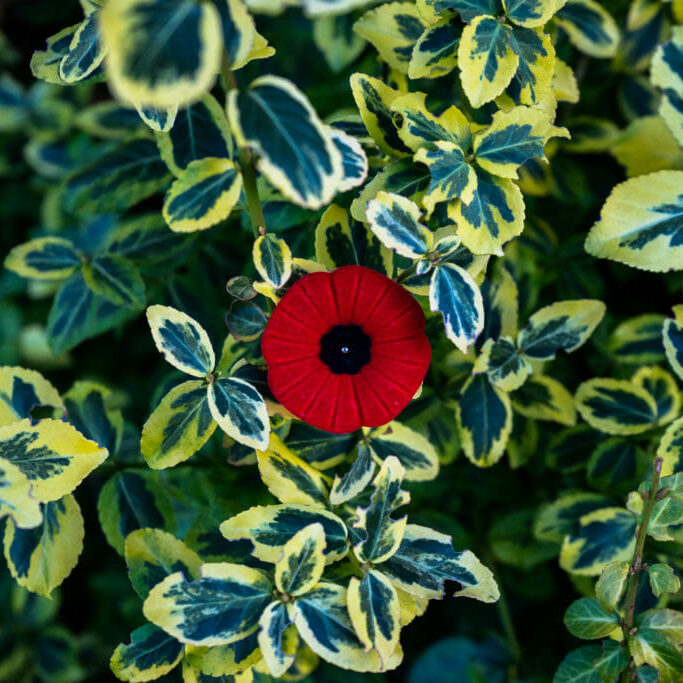
Poppy controversy
Poppy debates distract from actual Remembrance
The poppy tradition has endured decades.
More than a century since the First World War, millions of Canadians wear the poppy in November as a symbol of thanks and Remembrance to Canada’s fallen veterans.
The tradition began when a French woman decided to make and silk sell poppies to raise money for children in war-torn France. It was her who brought the idea to the Great War Veterans’ Association of Canada in 1921. And when the Royal Canadian Legion formed in 1925, they carried on the tradition.
But the custom hasn’t endured without a degree of controversy.
There are those who see problems with the tradition: suggesting that it’s merely a means of virtue signalling one’s patriotism without having to learn a single thing about issues concerning Canada’s veterans. A free token to keep up appearances.
On the contrary, others say that the visual nature of the symbol is enough. That the symbolic gesture is one that unifies Canadians, and that the small flower does enough to preserve the memory of those who died in battle.
But some have taken a more direct stance against the poppy. Some politicians have refused to wear the poppy, on the grounds that it shows support for Canada’s participation in conflicts around the world that they deem unjustifiable.
Mississauga Centre MPP candidate Laura Kaminker wrote in a 2014 blog post, “I just wear my peace button and wait for the collective brainwashing to blow over.”
Others, particularly in the United Kingdom, have opted to wear a white poppy as a way to simultaneously show respect to veterans and to demonstrate a pacifist stance. In 2016, there were about 1,200 white poppies distributed in Canada.
Even the white poppy has its detractors. British MP and former army officer Johnny Mercer described the white poppy trend as “attention seeking rubbish.”
In the grander scheme, many of the debates surrounding poppies are silly.
If someone doesn’t want to wear a poppy so be it. You have the right to dissent and make your criticisms heard.
If you think that the poppy is inadequate at demonstrating your appreciation for veterans, that’s fine. Whether you’re a veteran yourself, have a personal connection to the armed forces, or just wish to express your appreciation, you shouldn’t be discouraged from demonstrating patriotism. Patriotism is a personal thing, and many people have different levels of comfort with regards to expressing it.
In fact, what would be more productive than engaging in this debate at all would be to inform yourself of the history of Remembrance Day, or even to learn about ways in which you could remember, honour or help veterans in your day to day life.
For example, Canada has over 6,000 veterans’ memorials. Make yourself aware of them, you likely pass one on a regular basis.
If you have the opportunity, go to the Canadian National Vimy Memorial in France, an astounding monument etched with the names of 11,285 fallen Canadian soldiers.
If you’re so inclined, take time to learn about Canadian foreign policy. Learn about the conflicts that Canada has participated in.
Develop a nuanced opinion.
Take time to know about the plurality of issues of facing veterans. Many veterans have lingering issues from their service like having a hard time adjusting to civilian life, homelessness, and PTSD.
No matter what your beliefs are surrounding Remembrance Day or war, certainly all of these things are more productive than debating the legitimacy of a plastic poppy.






